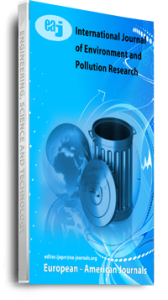The Niger Delta region of Nigeria possesses abundant crude oil resources; nevertheless, it is adversely affected by illegal artisanal refining activities that provide considerable threats to the environment, public health, and local economies. This thorough research seeks to examine the diverse effects of artisanal crude oil refining in this environmentally vulnerable region. We employed a systematic methodology to analyze peer-reviewed literature, governmental reports, and case studies to evaluate environmental deterioration caused by pollution, habitat destruction, and biodiversity loss. We examined health ramifications associated with hazardous exposure in local communities and observed socio-economic repercussions, including loss of livelihoods and heightened poverty levels. Our research indicates concerning levels of air and water contamination associated with artisanal refining practices, which substantially contribute to respiratory ailments and other health complications within the community. Moreover, we emphasized that whereas artisanal refining offers immediate economic advantages for certain individuals, it intensifies long-term socio-economic instability owing to its informal characteristics. This assessment highlights an urgent necessity for comprehensive policy initiatives that reconcile environmental preservation with community requirements. We advocate for the establishment of sustainable alternative livelihoods for impacted people, the enhancement of regulatory frameworks overseeing oil extraction methods, and the augmentation of public awareness of the dangers linked to illegal refining activities. These initiatives would not only alleviate negative effects but also foster sustainable growth in the Niger Delta region.
Keywords: Environmental impact, Niger-Delta, Nigeria, artisanal crude oil refining, health implications, socio-economic consequences

